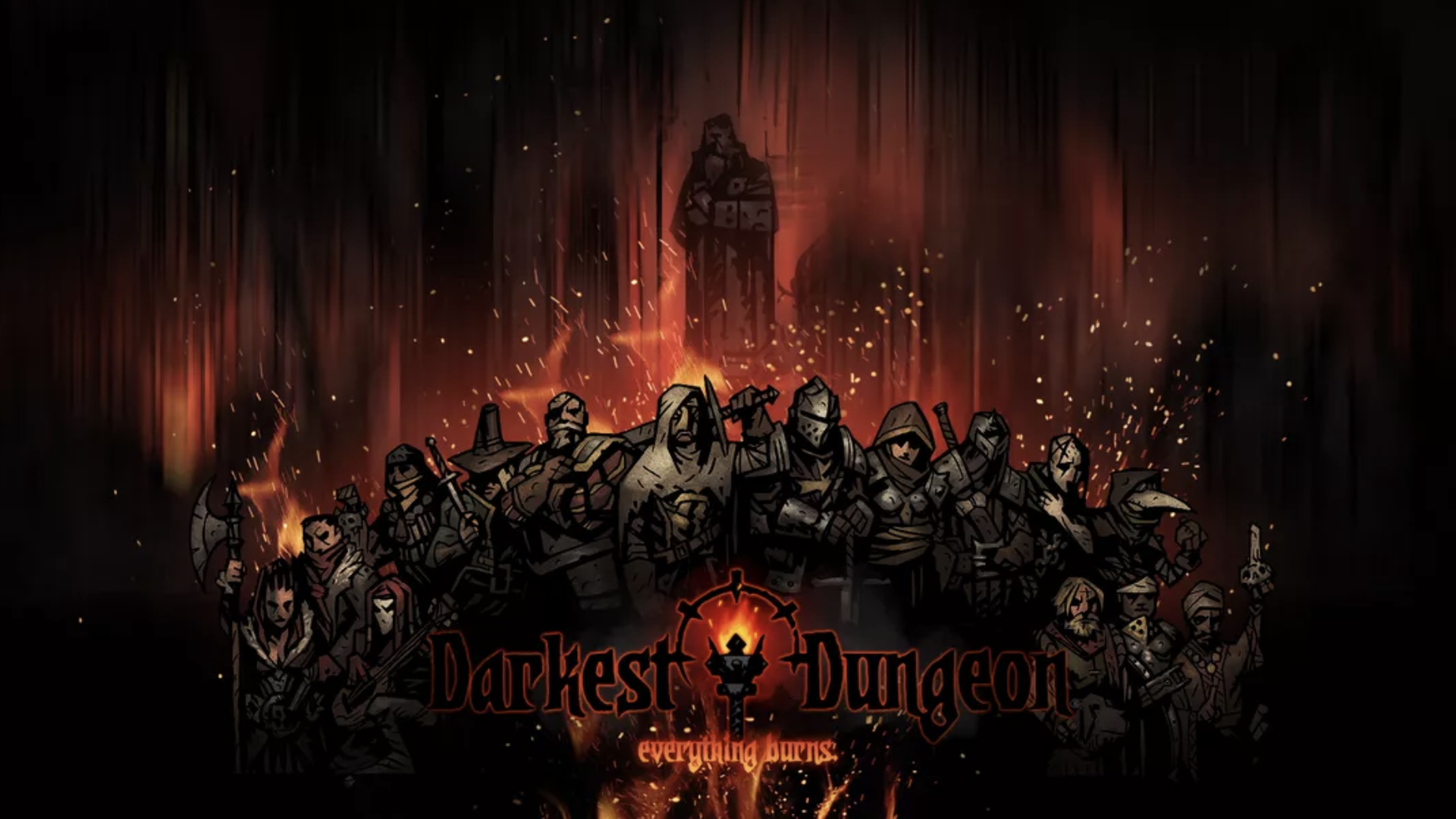Game developers say Early Access has been good for the industry
Add Axios as your preferred source to
see more of our stories on Google.

Darkest Dungeon. Art: Red Hook Studios
A decade after Early Access shook up how video games get released, many developers say that it has been a boon to the industry, despite potentially limiting creativity.
Why it matters: Along with digital distribution, Early Access (EA) has been instrumental in democratizing the modern games industry.
How it works: EA, on platforms like Steam and the Epic Game Store, allows for developers to release games before they are fully finished, to earn crucial revenue, build a community and receive feedback.
- Minecraft was an early success story after developer Markus Persson released an “alpha” version of the game in 2009.
- Now EA has become a robust part of the whole industry, and a big consideration for devs plotting out a game’s release, not to mention its design.
- Of the 11,749 games released on Steam in 2021, 1,858 of them were EA, according to SteamDB.
Valve incorporated EA into Steam in 2013, and one early hit was 2015’s roguelike adventure game Darkest Dungeon, developed by Red Hook Studios. It quickly found an audience and was among the top 20 best-selling games on Steam that year.
- “The traditional model of making a gold master and being done forever has a lot of flaws. This gave us an instant audience to help give feedback on the game, and also gave a much needed financial boost,” Tyler Sigman, co-founder of Red Hook Studios, told Axios.
Few games born out of EA marketplaces have matched the critical and commercial reception that Supergiant Games found in Hades.
- It was released along with the Epic Games Store as a timed exclusive in 2018. Hades went on to receive a host of Game of the Year awards in 2020.
- “We figured, we're going to get feedback on all these aspects of the game sooner or later — why not get more of that feedback earlier in the process when we still can do something about it?" Greg Kasavin, creative director at Supergiant Games, told Axios.
Yes, but: Not every game succeeds by releasing early. Many fail by not being able to gain an audience or by just not being a particularly good game.
- Exacerbating all of that is the fact that since more people have an opportunity to release games, there’s more of a chance those games will be swallowed up in the tidal wave of releases.
- “Making games, it's like I propose a theory that this experience will be fun,” Beamdog’s CEO Trent Oster told Axios. Beamdog released dungeon crawler MythForce to Epic Games Store’s EA in April. “And then once you expose it to the people, your theory is either validated or nuked.”
Between the lines: Many of the most successful EA games have been run-based, rogue-like games. That’s not only to keep players engaged but also to help a game’s chances of being discovered in crowded marketplaces.
- “If you're making a puzzle platformer, that realistically, 90% of players are just going to play through once, Early Access is not going to be a good fit for you,” Dylan Gedig told Axios. He founded Red Nexus Games, which brought its pachinko rogue-like Peglin to Steam’s EA in April.
- To him, if a game doesn’t have a “genre match” that coincides with an established community or fan base, “you're kind of fighting against an uphill current.”
- For small studios looking at EA, those parameters might steer them away from designing other types of games.
The bottom line: Since EA allows for more game releases, platform holders like Valve and Epic who receive a cut from sales have every incentive to keep it as part of the industry. And players have learned what to expect from these releases.
- “Players are a lot more discerning now, some totally ignore Early Access, others massively embrace it, and others use it to check out games that are already interested in an earlier stage than they might once have done, and they all play an important part of that ecosystem,” James Parker, director of puzzle brawler Fights in Tight Spaces, told Axios.
Sign up for the new Axios Gaming newsletter here.
